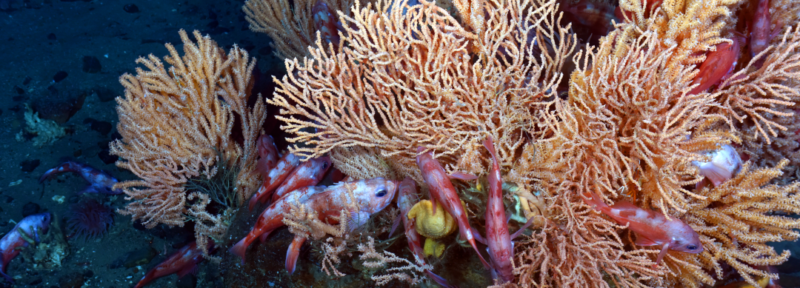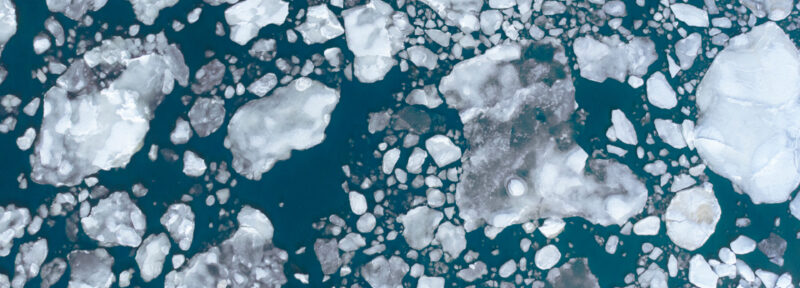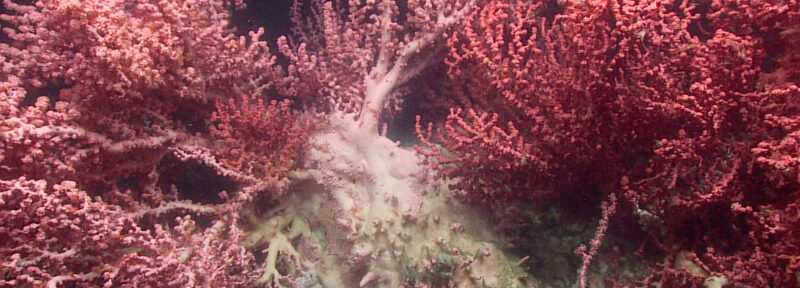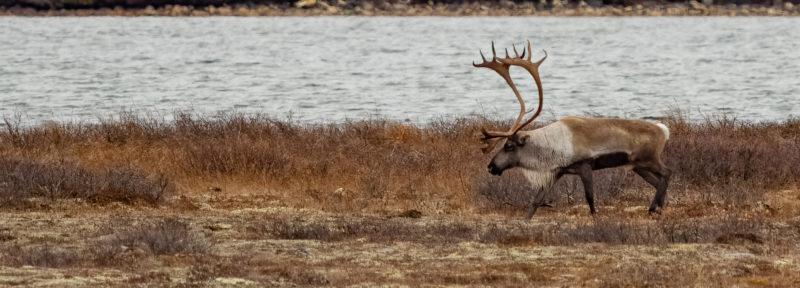Canadians Call for a Moratorium on Deep Seabed Mining
OTTAWA—As the International Seabed Authority meets in Jamaica, a petition asking for a global moratorium on deep seabed mining, signed by more than 4000 Canadians, goes to the government for a response.
On December 20, 2021, Oceans North, MiningWatch Canada, the Canadian Parks & Wilderness Society (CPAWS), Nature Canada, Northern Confluence, and West Coast Environmental Law launched a parliamentary petition calling on the Government of Canada to support international efforts to establish a moratorium on deep seabed mining. The petition closed on March 20 with over 4000 signatures.
The petition is part of a global campaign to stop deep seabed mining before it irreversibly destroys deep sea ecosystems. The International Seabed Authority is meeting this week to advance regulations that could open up the seabed to mining within the next two years. State parliaments, fishing associations, NGOs, Indigenous organizations, financial institutions, and corporations are joining the chorus of voices calling for the protection of the environment to be prioritized over expanded resource extraction. “Canada has made commitments to reverse biodiversity loss, fight climate change, and to foster equity and transparency in both environmental initiatives and international governance,” says Susanna Fuller, vice-president of operations and projects at Oceans North. “None of those things are compatible with deep seabed mining.”
Deep seabed mining plans to target metals, such as cobalt, nickel, manganese, and copper, that are found in polymetallic nodules on the seafloor and on seamounts—both of which are crucial habitats for rich, biodiverse ecosystems. The destruction of these ecosystems will have repercussions that span the water column and ocean food web. Over 600 scientists from around the world have signed a statement calling for a precautionary approach to deep seabed mining because the risk to the marine environment is too great, and the consequences too dire. “The Law of the Sea Convention, which Canada has ratified, requires effective protection of the marine environment and that mandate is fundamentally incompatible with mining the seabed, which is why we strongly advocate for a moratorium on deep-sea mining,” says Catherine Coumans, Co-manager and Asia-Pacific Program Coordinator at MiningWatch Canada.
Canada is currently discussing the draft regulations, standards, and guidelines for the exploitation of the international seabed at the International Seabed Authority meeting in Jamaica. Right now, however, these draft regulations fail to require adequate consultation, do not establish liability for damage to the seabed and related ecosystems or the communities who rely on them, and are not informed by sound science or the precautionary principle. “We’re hopeful the government will listen to Canadians and show leadership in advancing a just and a sustainable future,” says Fuller. “Canada needs to speak up, join and support the strong leadership being shown at the ISA meetings by countries such as Germany, Spain, Fiji, Costa Rica, and many others who are advocating that the primary purpose of the ISA must be upheld, which is to protect the environment of the deep seabed,” says Coumans.
Fore more information, please contact:
- Catherine Coumans, Co-manager and Asia-Pacific Program Coordinator at MiningWatch Canada [email protected]
- Susanna Fuller, Vice-President, Operations and Projects at Oceans North
[email protected] - Nicole Zanesco, International Policy Advisor at Oceans North
[email protected] - Alex Tesar, Communications Specialist at Oceans North
[email protected] - Valerie Croft, Communications Coordinator at MiningWatch Canada
[email protected]




